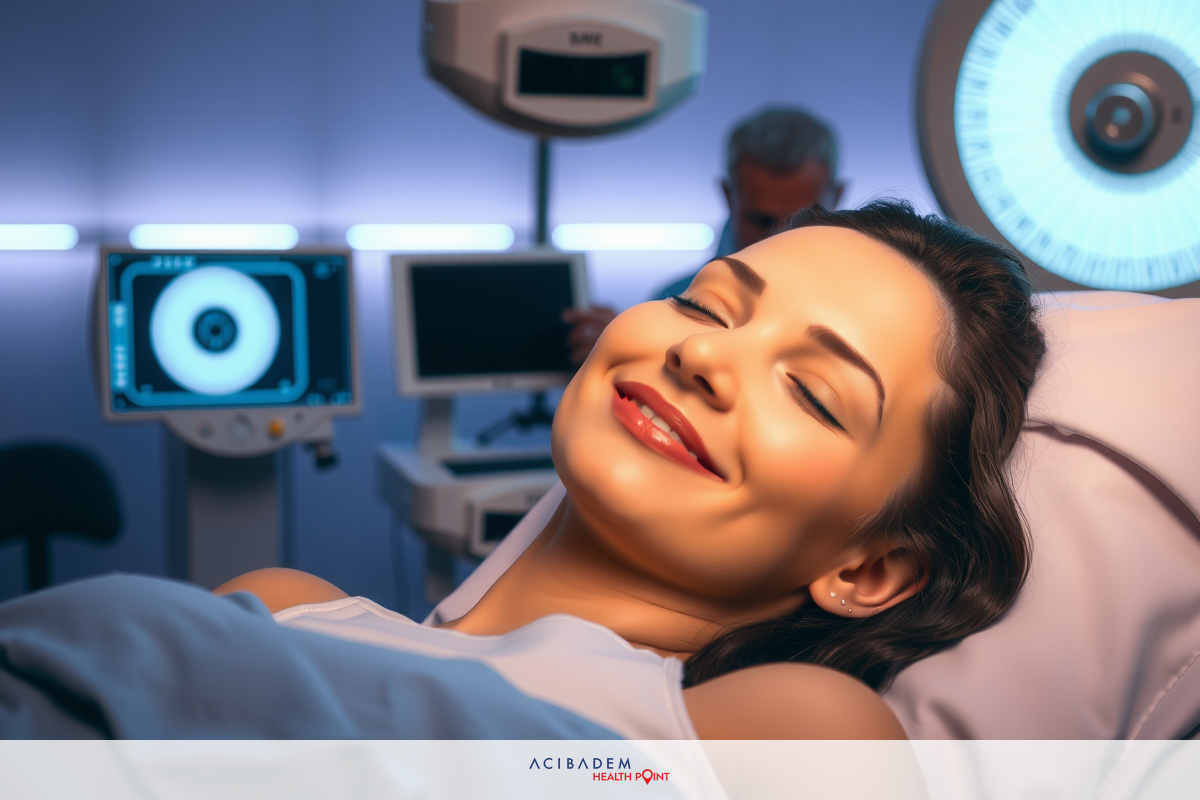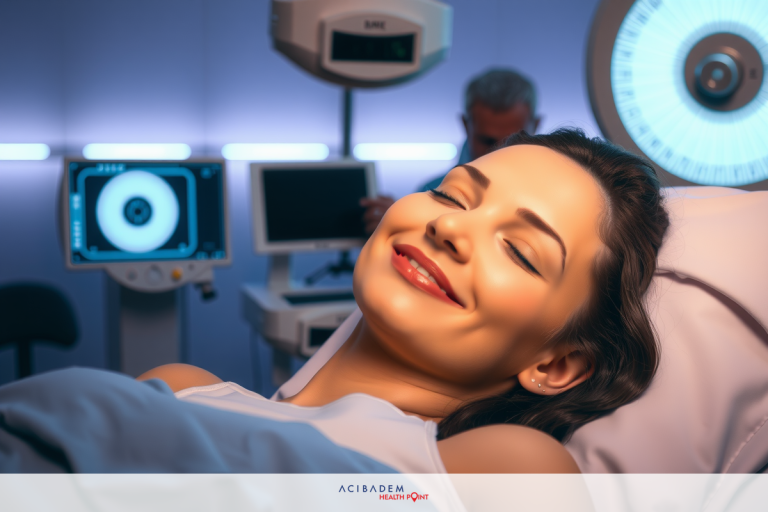Can I Be Put to Sleep for Laser Eye Surgery?
Can I Be Put to Sleep for Laser Eye Surgery? Navigating the medical landscape can often feel like walking through a labyrinth. You find yourself surrounded by terminology that sounds more like an alien language than something designed to help you understand your own body. So, when it comes to discussing laser eye surgery and the possibility of being put under anesthesia during this procedure, it’s no surprise if feelings of confusion or even anxiety start bubbling up.
Anesthesia is often associated with major operations, those which require deep incisions or lengthy periods in the operating room. Yet, its application isn’t limited strictly to such scenarios. There are many different types and levels of sedation available depending on individual patient needs and specific procedures involved. This may include options for inducing a state akin to sleep during less invasive processes such as laser eye surgery.
While contemplating whether one should opt for sedation during their laser eye treatment, some important considerations come into play – But let us not get ahead of ourselves just yet! It’s crucial first to comprehend what type of anesthesia might be used in these circumstances before we tackle why someone might choose this path.
Can I Be Put to Sleep for Laser Eye Surgery? Being Put to Sleep
As we dive into the benefits associated with anesthesia or sedation during laser eye surgery, it’s important to first understand that these procedures are typically performed while patients are awake. The eyes are numbed using local anesthetic drops, ensuring comfort throughout the process. However, some patients may still feel uncomfortable at this prospect and opt for additional sedation for a variety of reasons.
One key benefit lies in the peace of mind offered by anesthesia – the idea of being unaware during a procedure involving their eyes might soothe individuals who experience anxiety related to medical situations. Elevated stress levels can potentially impact surgical outcomes negatively as tense muscles and rapid movements might interfere with precise laser application. Thus, choosing to be under sedation could help increase procedural accuracy by ensuring patient relaxation.
Beyond psychological comfort, another advantage pertains directly to physical ease. Patients undergoing laser eye surgery often need to maintain very specific positions for extended periods which can become physically challenging over time. Furthermore, involuntary reflexes like blinking or sudden movement due to minor discomforts could complicate proceedings considerably despite the use of anesthetic eye drops. Sedation mitigates these risks substantially making it easier both for patients and doctors conducting the procedure.
Lastly but not least importantly is pain management post-procedure; although discomfort after laser eye surgery is usually minimal thanks to advanced techniques used today, individual pain thresholds vary widely among people leading some people towards opting full anesthesia where they would wake up completely pain-free from any immediate post-surgery sensations.
Considerations for Anesthesia
Anesthesia, while offering numerous benefits, is not without its considerations. It’s essential to understand that anesthesia in itself is a medical procedure with unique risks and potential side effects. Full sedation or general anesthesia, which puts you completely asleep, might seem appealing but carries more risk than local anesthetics or mild sedatives. These could range from minor post-procedure nausea to rare but serious complications such as allergic reactions.
In addition to the inherent risks associated with anesthesia itself, there are other factors worth considering before deciding on this path for laser eye surgery. The first among these relates directly to the patient’s personal health

status – age and existing medical conditions can influence how one reacts to anesthesia. For instance, older patients or those with certain chronic illnesses may experience different responses compared to younger individuals or those without underlying health issues.
Another key factor pertains directly towards financial implications; while many insurance companies cover laser eye surgery procedures partially if not fully depending on policies in place – often times additional costs related towards administering general anesthesia aren’t included within their coverage plans leading some patients towards out-of-pocket expenses they hadn’t anticipated initially when opting full sedation during their treatment process.
Lastly, it’s important to consider your own comfort levels both physically and emotionally before making any decisions about your approach towards handling discomfort during procedures like laser eye surgeries – after all every individual’s pain threshold varies widely amongst people hence what might have worked well for someone else doesn’t necessarily mean it would work equally well for you too! Always remember, you know yourself best so never hesitate discussing openly about any concerns regarding proposed treatments with your doctor who’d be able guide based on their professional expertise along keeping in mind unique needs specific only unto you.
Consulting Your Insurance Company
The financial aspect of medical procedures can often feel like a minefield to navigate. When it comes to laser eye surgery, the cost may vary significantly depending on several factors such as your chosen clinic and surgeon, the specific technology used in the procedure, and whether or not you choose anesthesia or sedation. One critical step towards understanding these costs is consulting with your insurance company for detailed insights into what is covered under your plan.
Insurance coverage for medical procedures can be complex and varied. Some plans might fully cover surgical expenses while others offer partial coverage or none at all – this depends heavily on individual policy specifics along with broader regulatory guidelines governing healthcare practices within different regions globally. For instance, some insurance companies may cover the cost of local anesthetics but not general anesthesia unless it’s deemed medically necessary by a professional evaluation pre-procedure.
Therefore, direct communication with your insurance provider becomes paramount prior making any decisions about undergoing laser eye surgery under sedation – they’ll provide accurate information based off policy details unique unto you! Remember that each insurer has their own set criteria regarding which treatments are considered essential versus elective; hence gaining clarity from them first hand helps avoid potential surprises later down line when final bills arrive post-procedure completion.
In addition to discussing coverage details with insurers directly, consider also seeking advice from professionals involved within treatment process itself such as doctors performing surgeries or administrative staff working at clinics where these would take place – often times they have extensive experience dealing similar scenarios could guide effectively through complexities associated ensuring maximum benefits derived out existing health policies held by patients planning undergo laser eye corrective procedures involving use anesthesia.
Frequently Asked Questions
There are several types of anesthesia that might be employed during a laser eye surgery procedure. These can range from local anesthetics administered in the form of eye drops, to mild sedatives taken orally or through inhalation, to full general anesthesia which puts patients completely asleep.
While all medical procedures carry some level of risk, modern medicine has made administering general anesthesia much safer than it once was. However, the safety and appropriateness of using such measures during a procedure like laser eye surgery will depend on each individual's health status and personal requirements.
This is best clarified by contacting your insurance provider directly as coverage varies significantly between different policies and insurers. Some may cover the costs partially or fully while others may not provide any coverage at all – especially since administering anesthesia could sometimes get classified within non- essential treatment categories unless deemed medically necessary.
Yes, you definitely have a say in this matter! Your comfort is paramount when undergoing medical procedures like laser eye surgeries making it essential that you discuss openly with your doctor about any concerns surrounding potential use of sedation - they'd guide based off their professional expertise along keeping in mind unique needs specific only unto you! The answers provided here aim at offering informational insights into common questions related towards understanding aspects revolving around potential use of sleep-inducing techniques involving administration various forms anesthetics amidst contexts specifically associated with conducting corrective vision treatments via lasers; however these should never replace seeking direct advice from healthcare professionals involved within one’s own treatment process. What types of anesthesia are used for laser eye surgery?
Is it safe to undergo general anesthesia for laser eye surgery?
Will my insurance cover the cost if I choose to be put under anesthesia during my operation?
Can I decide whether or not to be put under sedation myself?








